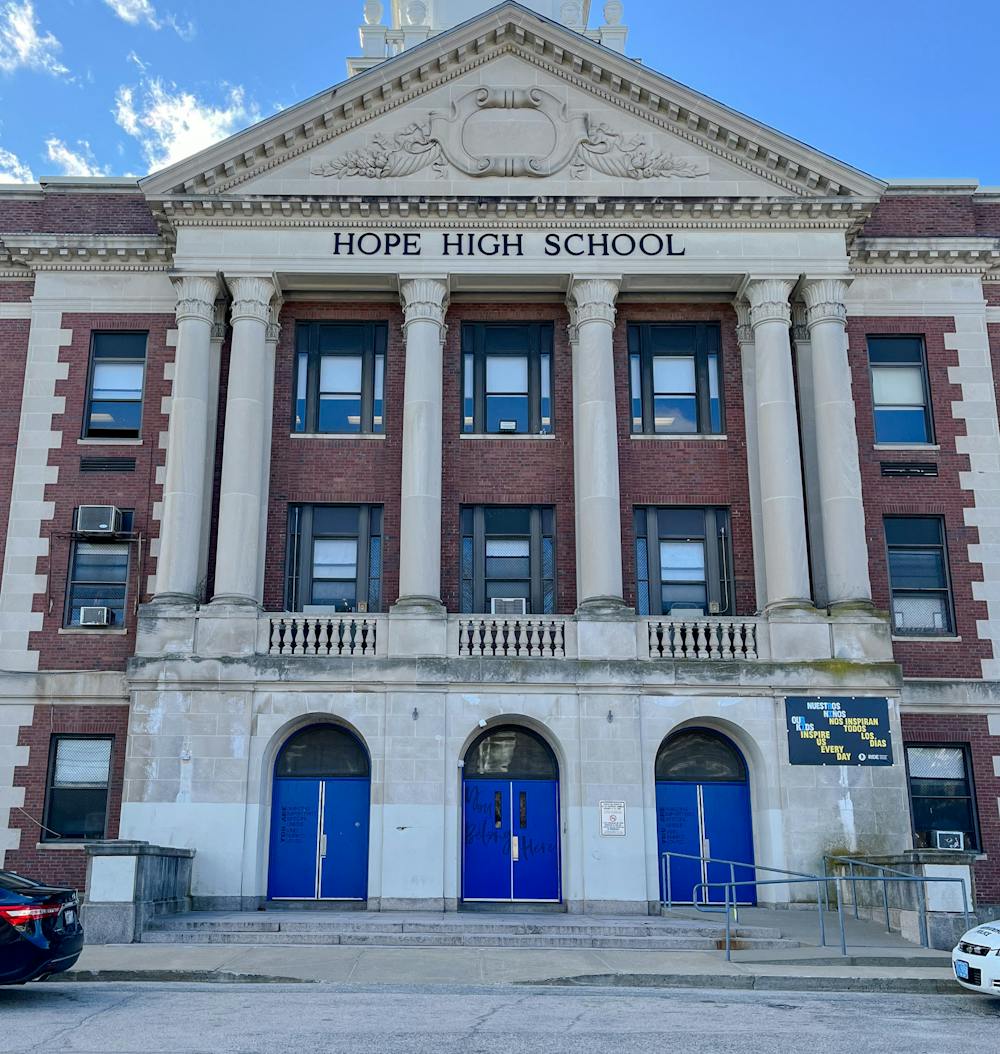Masks became optional March 7 for most school districts in Rhode Island after Governor Dan McKee lifted indoor masking requirements in schools, The Herald previously reported. The mandate applies to all districts except Providence Public School District, the largest district in the state, and Central Falls School District, which has been among the communities hit hardest by the COVID-19 pandemic.
This decision follows a trend of other states lifting mask mandates for schools following the national decrease in cases and severe COVID-19 symptoms.
Philip Chan, consultant medical director at the Rhode Island Department of Health and associate professor of medicine at the University, explained that with low levels of COVID-19 in the community, it is safe for the public to be maskless according to guidance from the Centers for Disease Control and Prevention. Masking restrictions depend on the community’s infection rate, which is currently low in many areas of Rhode Island, Chan added.
Chan explained that community members should continue to take precautions to limit the spread of the virus, such as staying home when they feel sick and testing when experiencing any symptoms. Schools should ensure that they have proper ventilation, he said, adding that transmission is less likely when people gather outside. Students should also mask when cases are high in schools.
Jassell Medina is a student from Cranston High School East, where masks are now optional. Medina feels that the decision is a bad idea. “People can feel really uncomfortable,” she said. “They’re not going to be able to prioritize their learning when they're concerned about their health.”
Medina estimated that 80% of students at Cranston East still wear masks. She explained that masking has not really impacted her experience as a student, and that it is important to be considerate of students who may have high-risk individuals living in their homes.
“It's annoying,” Medina added. “I don't want to wear a mask either, but I'm going to do what is right.”
Chan explained that there is not a lot of COVID-19 transmission in K-12 settings.
“Out of all the students who were impacted with COVID (in Rhode Island), only about 5% had contacts in or thought maybe to have gotten it from the K-12 setting,” Chain said. “That means that 95% of the K-12 setting gets COVID from the community” as opposed to in the classroom.
Even with low infection rates, Chan added that “children in general are affected to a much lesser degree by COVID.”
Demi Egunjobi is a sophomore at Classical High School in Providence, where masking is still mandated.
“I was so thankful that they decided to keep masks because COVID is still definitely a big problem,” Egunjobi said. “It's also frustrating because you still see people that (treat the mandate as) optional. You see people in the hallways that don't wear their masks or are wearing them below their nose. It’s really frustrating because COVID is still happening.”
After winter break, Egunjobi said she saw a spike in COVID cases and a lot of people missing school, adding that the mask mandate is “absolutely necessary.” The same week Providence Schools reopened, Rhode Island saw a minor spike in COVID-19, with just over 3000 cases per 100,000 people.
Medina added that the COVID-19 pandemic has impacted the quality of her education. Medina, her siblings and her friends have all had to miss significant class time due to COVID.
“COVID completely changed our lives,” she said. “It's been a roller coaster.”
Though she initially faced difficulty registering other students’ expressions beneath masks, Egunjobi said that she and her peers have mostly gotten used to wearing masks at school.
Egunjobi added that her experience has been impacted by her school’s testing requirements, which include testing at the beginning of each week during class time. This sometimes hinders student learning and class pace, she said.
Chan commended school boards and the state for being proactive and aggressive with their precautions in reopening. The state’s decision to remove masks was made in consultation with the Rhode Island Department of Health as well as state and school leadership. He said students should choose whether or not to wear a mask based on their comfort level, adding that masking is a personal and school decision.

Elysée is a writer for metro, a producer for the Bruno Brief podcast and an aspiring card game creator. She is a second-year student studying International and Public Affairs on the Policy and Governance Track.





